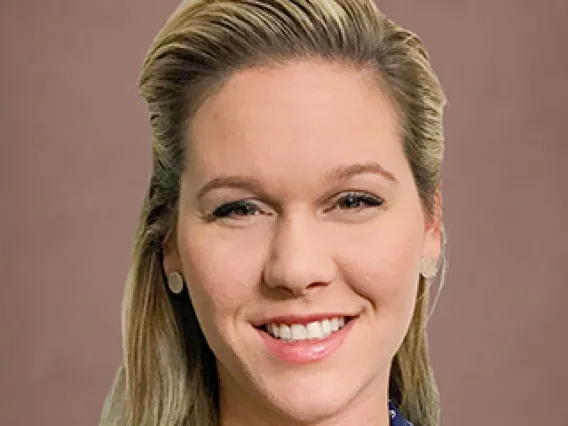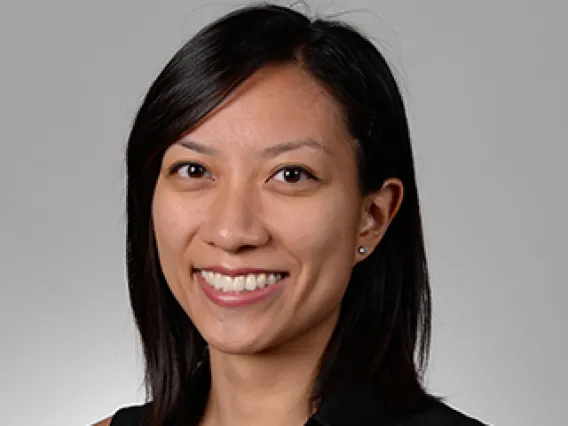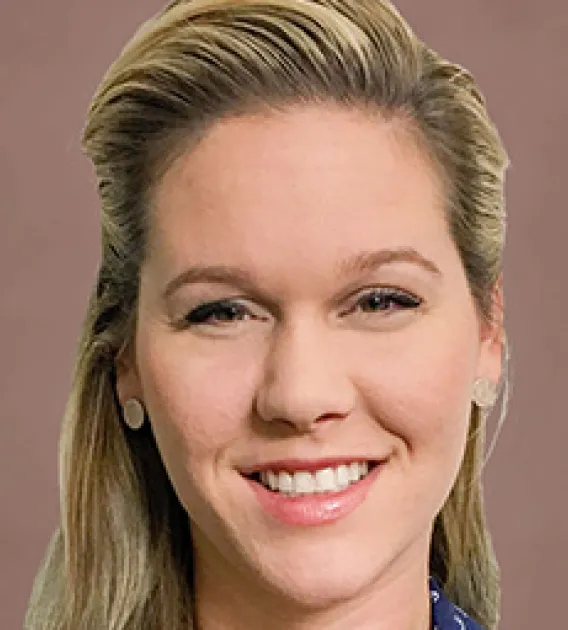Preceptors:
Supporting Future Pharmacists
Why should I become a Preceptor?
Preceptors play a critical role in pharmacy by:
- Serving as mentors
- Providing practical experience to pharmacy students
- Ensuring a strong future for the pharmacy field
Preceptors receive a UA NetID and email that provides access to many of the UA Library services, free and discounted continuing education, special recognition, and the ability to purchase a CatCard, discounted tickets through Centennial Hall box office and membership at the campus recreation centers.
Who can become a Preceptor?
Before signing up to become a Preceptor, you must:
- Hold a current unrestricted pharmacist license
- Have a minimum one year of licensure before acting as a preceptor
Ready to Become a Preceptor?

Sign up through CORE ELMS and use the code PRECEPTOR (case sensitive).
After signing up, you can expect to hear from a member of the Experiential Education team within a couple weeks. If you don't hear from us, please send our team a message.
Preceptor Orientation Materials
Our mission is to improve the health and wellbeing of individuals in diverse and global communities by:
- Educating the next generation of leaders, professionals, and innovators in pharmacy and pharmaceutical sciences.
- Generating new knowledge and innovative solutions to optimize health and patient outcomes.
Quality Criteria for Preceptors - You Must:
- Have a site Affiliation Agreement with the University of Arizona
- Have an active license for one year in the U.S. and complete this Application (enter the code PRECEPTOR):
- Complete the electronic designated campus colleague agreement and associated trainings
- Serve as a positive role model and demonstrate an aptitude for teaching
- Contribute to the quality improvement of the educational program
Curriculum Overview
Our curriculum is designed to prepare our students for patient care and competence in alignment with the Pharmacists' Patient Care Process. Our curriculum includes basic science, pharmaceutical science, social and administrative science, pharmacotherapy, professionalism, a capstone course and electives.
Tips from Experienced Preceptors
- Clearly state your expectation on the first day of the rotation by using a syllabus.
- Utilize the Student Introduction Form to better understand the student's strengths, weaknesses, and goals prior to the start of the rotation
- Create a Schedule and Rotation Calendar for the students to provide clear structure and clarify expectations for when a student will be on site
- Create a Checklist of activities
- Get written and verbal feedback from other staff the student works with
Download our Quick Tips Handout for more help.
Free Preceptor Resources
American Society of Health-System Pharmacists (ASHP) Preceptor Resource Center
UArizona Health Sciences Library Resources for Pharmacist
Student Schedules, Rotation Schedules, and Absence Policies
It is up to you as a preceptor to decide what schedule works best for you, your students, and your site. Students must abide by the holiday schedule for the rotation site, not the school's holiday schedule.
You can give students credit for hours completing projects off-site. We recommend against providing credit for:
- Completing homework
- Pre-readings
- Studying off-site
Absence Policy:
- You determine when a student's absence is excused or unexcused.
- Students may request a professional leave of absence for activities related to professional development.
- If you deem this appropriate and it does not interfere with the learning objectives of the rotation, the student should submit a Professional Leave Request Form to you for a signature. The student will then submit the signed form to the school for our signatures
Rotation Hours and Approval
Students must work to achieve the minimum number of rotation hours to earn academic credit:
- IPPE: 120 hours
- RHPP IPPE: 160 hours
- APPE: 232 hours
Approving Rotation Hours
- On the last day of rotation, students should ask you to sign their report of intern hours form
- Students are responsible for uploading the form to CORE ELMS
- Once completed, you will receive an email from CORE ELMS asking you to approve those hours online
- DO NOT approve multiple submissions from the same student
Preceptor Instructions
The following describes the steps to correctly approve or deny your student's rotation hours in CORE Elms.
- Login to CORE ELMS (RXPreceptor).
Select "Hours Tracking/Timesheet". - Pending rotation dates and total number of pending hours will appear.
Click the "Open" icon under the Doc column. Students are required to upload the form to CORE Elms.
If you do not see one, please do not approve the hours. The students should have asked you to sign this document before it was uploaded. - If the hours are approved,
Select "Confirm" and "Update". - If you deny the reported hours,
Select "Deny" and type a comment explaining why the hours are not approved.
Click "Update" and please contact the student to let them know he/she needs to modify and resubmit his/her hours.
CORE Elms is the college's experiential learning management system. Please contact Expedu@pharmacy.arizona.edu if you have any trouble logging in.
Under Profile Information, you can:
- Describe yourself
- Select specialties that the student may gain exposure to while on rotation
- Enter the rotation requirements
- Upload your rotation syllabus or other documents
- Post an example rotation calendar
Under Evaluations, you can:
- Complete evaluations and assign grades for your rotation students
- View evaluations of you and your site from past students
Under Scheduling, you can:
- View your schedule of rotation students
- View contact information for your rotation students
Under Hours Tracking, you can:
- View pending and confirmed rotation hours
- Confirm rotation hours
Under Document Library, you will find:
- Syllabus templates
- Rotation Checklists
- Hour reporting form
- Evaluation Forms
- Optional Student Nomination form
- Preceptor Evaluation of Student form (to be used by student for an optional self-evaluation)
- Student forms
- Student Professional Leave Request form
- Student Introduction form
- Example drug information rubrics and assignments
- APPE & IPPE Rotation Dates
- Training Videos
We encourage you to assign projects and presentations that are appropriate for the student and your site.
Examples Include:
- Drug information responses
- Formulary monographs
- Journal club
- Medication error reports
- Practice guideline evaluation
- Clinical Pearls
The evaluation form is used for both IPPE and APPE students on all rotation types. For each outcome, you will be able to indicate the students’ achievement level. Please use the comment boxes to include specific information, like competencies or objectives for which you would like to recognize the student, or have them work to improve.
We highly recommend that you complete a Midpoint Evaluation and require that you complete a Final Evaluation. Also, please try to provide regular feedback in addition to the formal evaluations.
Midpoint Evaluation
We recommend conducting a midpoint evaluation with students. To do so, coordinate:
- 3 weeks into Advanced Pharmacy Practice Experience (APPE) rotations
- 1.5 weeks into summer and winter Introductory Pharmacy Practice Experience (IPPE) rotations
- 7-8 weeks into semester-long IPPE rotations
Please review:
- Areas in which students are doing well
- Areas in which students are needing improvement
- Plan for improvement and goals for the rest of the rotation
After you save the Midpoint Evaluation in CORE ELMS, it will be available and viewable alongside your Final Evaluation. Please contact us at or before midpoint if there is an issue with the student or if the student isn't meeting minimum expectations. We are here to work out a solution!
Final Evaluation
We recommend conducting a final evaluation with students in person on the last day of the rotation
Please review:
- Areas in which students performed well
- Areas in which students can continue to improve
- Plan for improvement and goals for future rotations or career
Grading for each Outcome:
- Distinguished: Student is able to achieve this outcome without assistance and exceeds expectations of a student at this point within the curriculum (e.g. IPPE rotation vs. APPE rotation block 8)
- Proficient: Student displays satisfactory progress towards achieving this outcome and is appropriate for a student at this point within the curriculum (e.g. IPPE rotation vs. APPE rotation block 8)
- Needs improvement: Student cannot achieve this outcome without significant assistance
- Does not meet expectations: Student is unable to achieve this outcome and does not meet expectations of a student at this point within the curriculum (e.g. IPPE rotation vs APPE rotation block 8)
- Not exposed or not applicable (N/A): Student was not exposed to an opportunity to demonstrate achievement of this outcome on this rotation
After assigning a grade for each individual outcome, you will be asked to select an overall grade. Please use the following scale.
- S - Superior - Performance was exceptional and noteworthy for a student of this level (this grade should be reserved for only those students who perform in the top 5% of all students)
- P - Pass - Performance was good, appropriate and acceptable for a student of this level
- F - Fail - Performance was below expectation and did not show improvement. Student needs to repeat an equivalent experience
If a student is performing below expectations, please contact the Director of Experiential Education immediately.
Learning Goals & Objectives
Preceptors are encouraged to review the following Learning Goals & Objectives for IPPEs and APPEs.
Experiential Education Team

Janet Cooley
Director, Experiential EducationAssociate Clinical Professor

Amanda Diaz
Program Coordinator, Experiential Education
Elizabeth Hall-Lipsy
Associate Dean, Faculty and Academic AffairsAssociate Professor of Practice

Amy Kennedy
Associate Clinical ProfessorAssistant Department Head, Pharmacy Practice & Science
Director, Health Disparities Professional Certificate/RHPP


Loretta Peters
Coordinator, Experiential Education Program
Jenene Spencer
Instructor, Pharmacy Practice and ScienceIPPE Coordinator, Experiential Education

Karen Tenace
Program Coordinator, Rural Health Professions Program
Sandi Thoi
Instructor, Pharmacy Practice & ScienceRegional Coordinator, Experiential Education












